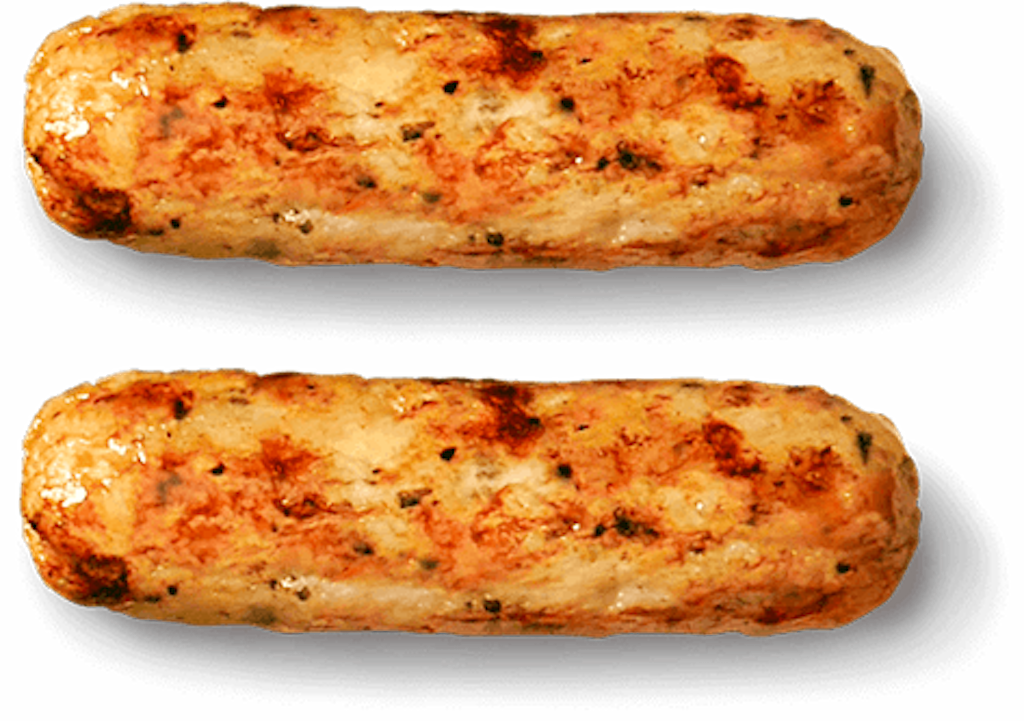British Startup Ivy Farm Says It Plans To Bring Cell-Based Pork Sausages To Market By 2023
3 Mins Read
Ivy Farm Technologies, a spinout of Oxford University, wants to become the first British firm to commercialise cultured meat and says it will debut its cell-based pork sausages by 2023. Currently raising funds for its pilot R&D facility, the startup also revealed plans to roll out cultivated meatballs and beef burgers in the coming years.
Oxford University spinout Ivy Farm has set its sights on being the “first British company to put cultured meat on people’s plates”. By 2023, the company wants to supply supermarkets and restaurants in the U.K. with its cell-based pork sausages, followed by meatballs and beef burgers.
While not the only startup in the U.K. cultivated protein sector – there are number of British players like cell-based bacon and pork belly maker Higher Steaks, cultured fat company Hoxton Farm and Newcastle University spin-off B2B cell-culturing platform CellulaREvolution – Ivy Farm says it could become the first commercial producer of specifically cell-based meat in the country.
To reach its goal, the company has begun its £16 million (US$22.7 million) fundraiser, which will go towards constructing its pilot R&D facility. By 2025, Ivy Farm hopes to be producing 12,000 tonnes of slaughter-free cultured pork annually, which it says will save the lives of 170,000 pigs.

Cultured meat is the silver bullet – through cutting edge technology we can provide real, high-quality meat while saving the planet
Dr. Russ Tucker, Co-Founder, Ivy Farm
Co-founder Dr. Russ Tucker says that Ivy Farm’s ambitions will also help slash the enormous emissions from the meat and dairy industry, which currently drives nearly a fifth of the world’s greenhouse gases, more than all global transportation combined.
He said that Ivy Farm and its sustainable protein solution hopes to “put Britain on the map in the emerging global industry by producing cultured meat products,” and added that the British government should “get behind the sector given the opportunity for the U.K. to be at the forefront of an industry that can help to save the planet.”
“Already nearly half the worldwide harvest is required to feed livestock and that’s only going to go up. Cultured meat is the silver bullet – through cutting edge technology we can provide real, high-quality meat while saving the planet,” Dr. Tucker continued.
“Ivy Farm will be great for the environment, great for meat lovers and great for animals as there’s no slaughter.”

We believe our technology is among the best in the world and that we can fly the flag for Britain.
Rich Dillon, CEO, Ivy Farm
Ivy Farm’s technology, developed out of Oxford University, is a non-GMO process where animal cells are placed in a bioreactor, fed a mix of vitamins and minerals to replicate and produce meat within four weeks. The startup describes its technology as continuous, meaning that muscle and fat can be harvested without disrupting the cells that are growing underneath – a similar system that Newcastle spinout CellulaREvolution says it has come up with.
The Oxford-based startup has differentiated its platform as a “game changer” because of its unique scaffold system.
While Singapore is currently the only country in the world to have approved cultured meat for commercial sale, Ivy Farm revealed that it is already in talks with the Food Standards Agency and is also planning to “talk to regulators in other parts of the world.”
“Make no mistake, cultured meat is here to stay. It’s a compelling proposition – real meat, guilt free,” said Ivy Farm CEO Rich Dillon. “Singapore has approved cultured meat and in Israel, Benjamin Netanyahu wants the country to become a ‘powerhouse’ in alternative meat. China is also investing huge amounts into the industry.”
“We believe our technology is among the best in the world and that we can fly the flag for Britain.”
All images courtesy of Ivy Farm.




